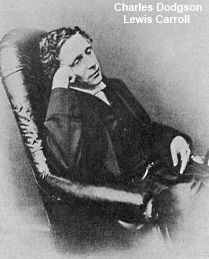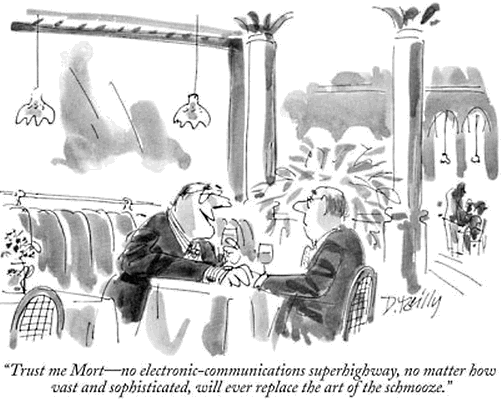|
|
|
|
|
|
|
News & Views item - May 2013 |
![]() Recording Lectures or Dispensing With Them? (May 28, 2013)
Recording Lectures or Dispensing With Them? (May 28, 2013)
Two of Australia's Group of Eight universities are featured in today's Australian for almost antithetical reasons, Richard Willder reports on The University of Melbourne beginning a serious look into recording lectures at two of its yet to be named faculties while Chris Griffith has The University of Sydney's business school in its sights.
 Melbourne's
viewpoint is to determine whether or not is will be useful and cost effective to
make standard "stand up" lectures available online and on demand while Quintin
Rares, the Unit of Study Co-ordinator of business negotiations,
has developed the first interactive digital textbook
app to cover an entire university course for Sydney University."
According to the School it "has developed what it says is 'the world's first
interactive digital textbook app to cover an entire university course'. The app
is being marketed internationally as an iBook app for Apple's iPad".
Melbourne's
viewpoint is to determine whether or not is will be useful and cost effective to
make standard "stand up" lectures available online and on demand while Quintin
Rares, the Unit of Study Co-ordinator of business negotiations,
has developed the first interactive digital textbook
app to cover an entire university course for Sydney University."
According to the School it "has developed what it says is 'the world's first
interactive digital textbook app to cover an entire university course'. The app
is being marketed internationally as an iBook app for Apple's iPad".
Mr Rares told The Australian: "A couple of years ago, when I was teaching this course, I delivered lectures as I suppose you would traditionally expect them to be delivered. Then I thought, this is a negotiations course. It is practical. We need to get practical things into the course."
As the course is now taught 50% of students' study period is spent practising negotiation skills, followed by debriefings and workshops: "My view is that the sandstone, you-need-to-turn-up-to-class universities have to change the way they teach, as (online) there's almost no focus at all on teaching lectures and standing in front of the room talking." And he went on to say that the 3-hours the students spent in the presence of the lecturer were devoted to "doing things and being tested... There's no place for them (lectures) any more. I see it (change) as almost necessary. Imagine you have a choice between going to, without mentioning any names, a second-rate university in Australia or you could go to Stanford online. Where would you prefer to get your degree?"
However, the co-dean of the University of Sydney's business school Tyrone Carlin cautioned: "Universities are set up with staff with a particular skill set. If we're going to morph from one model to another, that has a very human dimension to it as well, not only in terms of people's skill sets and aptitudes, but just in terms of people's desires."
Meanwhile at The University of Melbourne it will adopt an opt out policy. Mr Willder notes that: Under the new approach, lectures will automatically be recorded and coordinators who don’t want the service will need to cancel it and give reasons.
The University of Melbourne Student Union president, Kara Hadgraft, told Mr Willder that she had hoped for a university-wide approach but the trial was a big step forward. And added that while it will increase the use of recorded lectures, Melbourne will always remain an “on campus institution”
Not unexpectedly the move to recoded on demanded lectures -- which if deemed successful maybe introduced university wide starting within a year -- is not being greeted universally with enthusiasm by faculty. Deputy law dean John Howe told Mr Willder that legal lectures generally weren’t recorded because the school wanted to encourage class attendance and added that law was usually taught in a smaller seminar format rather than large lectures, and it worked best if students were “present and engaged in discussion”.
While universities may be loath to admit it we appear to be seeing an inexorable change taking place in universities' approach to learning which is an electronic evolution of "back to the future", i.e. where modern electronics is being harnessed to emulate the approach of Cambridge and Oxford.
In short aren't we witnessing the beginning of the Age of the electronic Don?
But take heart:
